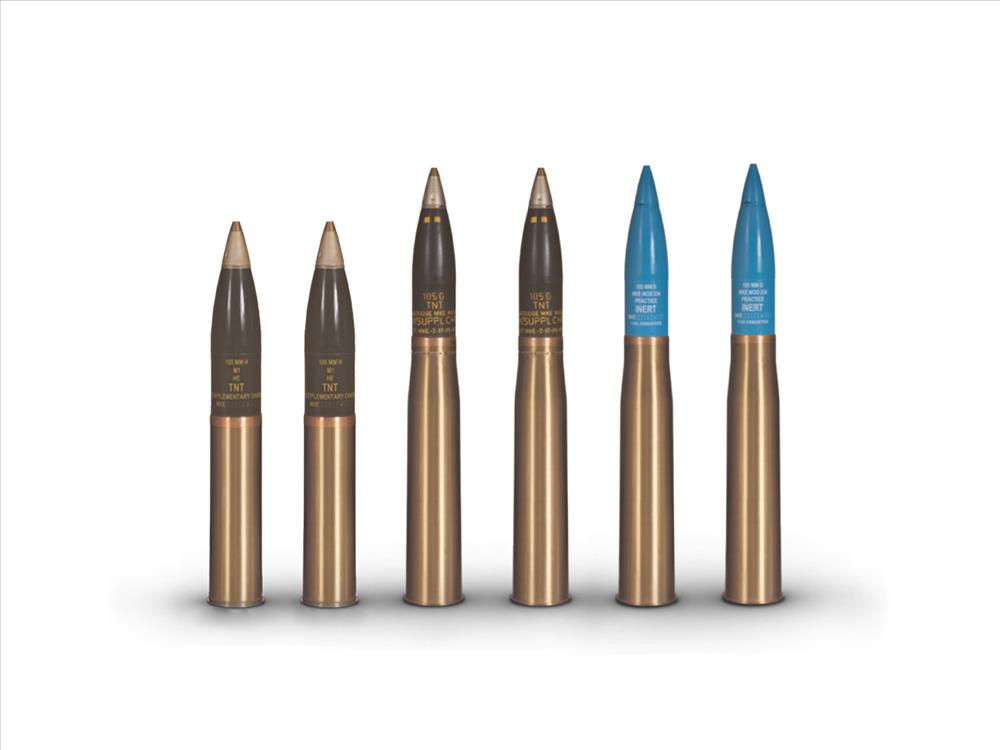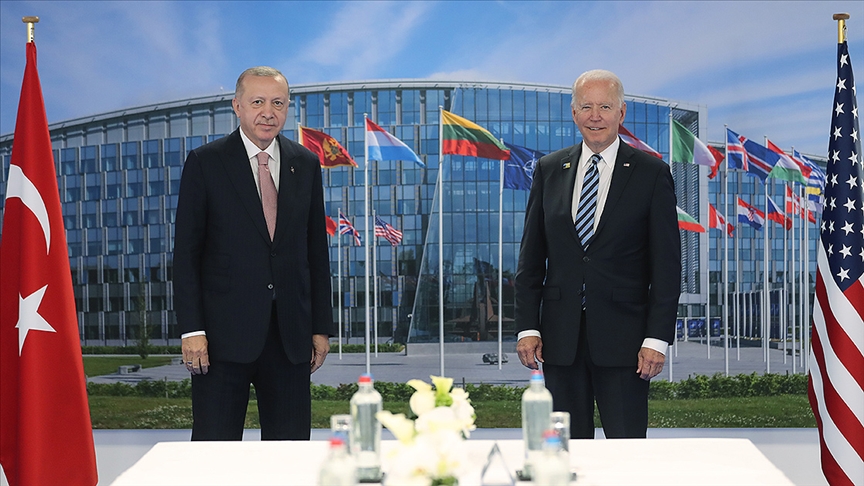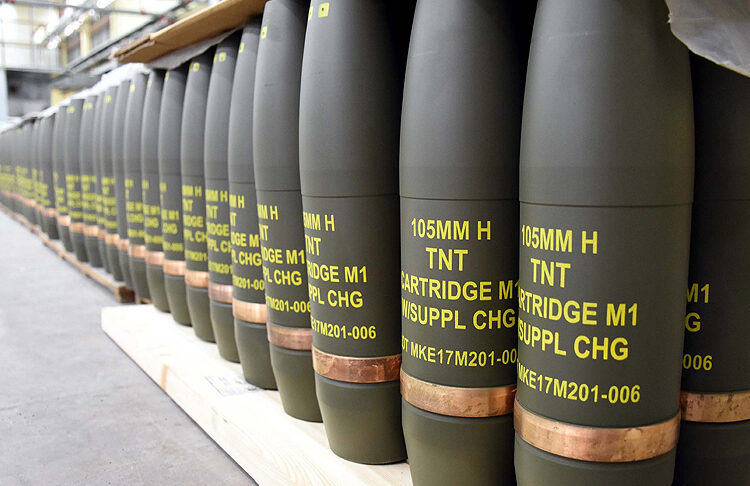Levent Kenez/Stockholm
Following Russia’s invasion of Ukraine, the United States, which has sent much of its munitions stocks to Ukraine, is closing the military’s inventory gap by purchasing munitions from Turkey with its procurement of 155mm caliber artillery shells. The primary reason for the US preference for Turkey is that all munitions, rockets and missiles produced by Turkey adhere to NATO standards.
It emerged in February that some EU countries were opposed to procuring munitions from Turkey for delivery to Ukraine.
The US military recently purchased 116,000 artillery shells from a Turkish company, with officials anticipating further purchases in the coming days. Moreover, the US is sourcing trinitrotoluene (TNT) used in munitions manufacturing and nitroguanidine used as a propellant for shells from Turkey, Bloomberg reported.

According to a diplomatic source in Brussels, the permanent delegations of Greece and Cyprus to the EU had been informed for some time about a significant ammunition order from Turkey being arranged, which would be financed with EU funds allocated for Ukraine’s urgent needs. Once the order was confirmed, the permanent representatives of Greece, Cyprus and France quickly responded by blocking the proposal.
Ukraine, which has been in a state of war with Russia since February 2022, actively utilizes UAVs and artillery in the conflict. Despite efforts by many NATO member countries to supply artillery ammunition to Ukraine, they are hindered by the limitations of their existing production capacities.
In essence, Greece, the Republic of Cyprus and France’s blocking of the procurement of Bayraktar TB2 UAVs and artillery ammunition from Turkey is a serious blow to Ukraine.
Furthermore, to increase artillery shell procurement, the US will establish three production lines in Texas. Through this production, the US aims to meet the munitions needs of its own military and those of Ukraine.
In a February opinion piece published by Utah’s Deseret News, US Ambassador to Turkey Jeff Flake stated that beginning next year, 30 percent of the 155mm shells produced in the United States would be manufactured at a facility in Texas. He further elaborated that these munitions lines were acquired from a Turkish defense firm, highlighting the significance of the U.S.-Turkey defense partnership.
Sources suggest that with purchases expected from North Korea, Russia, currently engaged in a war with Ukraine, will produce a total of 4 million artillery shells. Western countries have also dispatched numerous British-made M777 towed howitzers and French-made CAESAR self-propelled howitzers to Ukraine.
In recent years Turkey has become one of the leading countries in munitions production and export. Laser-guided munitions such as Mam-L, Mam-C, Mam-T, SOM cruise missiles, Kemankeş winged loitering munitions, air-to-air Gökdoğan and Bozdoğan missiles can be launched from Turkish-produced military drones. Additionally, the Çakır cruise missile and Atmaca anti-ship missiles are among the munitions produced by Turkey. Moreover, Turkey also manufactures artillery shells for its indigenous T-155 Fırtına howitzers and Panter-towed howitzers.
Relations between the United States and Turkey, which have experienced issues in the past, began to rapidly improve with Turkey’s approval of Sweden’s NATO membership in January.
Turkey’s defense ministry announced on February 29 that the United States had forwarded draft letters of offer and acceptance concerning Turkey’s request to purchase Block-70 F-16 fighter jets and upgrade kits.
This request was made by Turkey in October 2021, following its removal from the F-35 fighter jet program due to the acquisition of a Russian missile defense system.
Following Ankara’s approval of Sweden’s NATO membership bid, a series of negotiations ensued, leading to the US administration’s agreement to finalize the long-delayed deal.
In January US President Joe Biden’s administration formally notified Congress of its intention to proceed with the $23 billion sale of the Lockheed Martin jets. The sale became definite earlier this month when Congress did not intervene within the 15-day stipulated period.
Rear Admiral Zeki Akturk, the Turkish defense ministry spokesperson, said, “Turkey has received the preliminary offer documents from the US for the acquisition of 40 new Block-70 F-16s and 79 upgrade kits, along with ammunition and equipment. We have started the necessary examination and evaluation.”
Once Turkey completes its review of the preliminary documents, officials from both countries are expected to convene to finalize the agreement.

Meanwhile, Turkish President Recep Tayyip Erdogan is visiting Washington as the official guest of President Joe Biden for the first time, with the two leaders set to meet at the White House on May 9, according to reports in the Turkish press.












